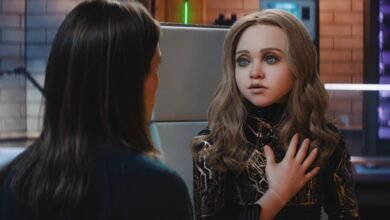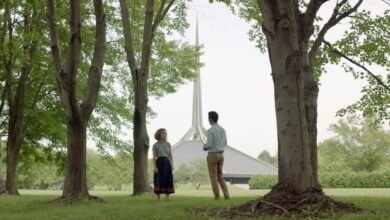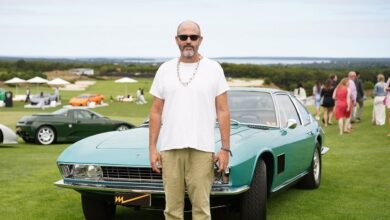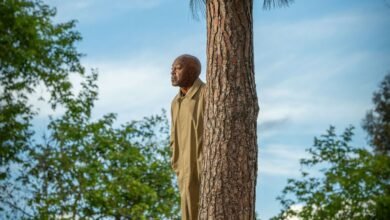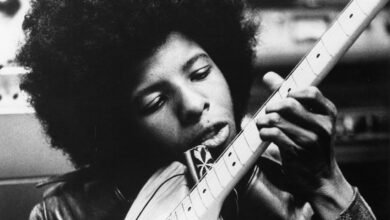
Listen and subscribe: Apple | Spotify | Google | Wherever You Listen
Sign up for our daily newsletter to get the best of The New Yorker in your in-box.
Kevin Costner, at almost seventy, is still the living definition of “ruggedly handsome.” No one squints into the distance quite like he squints into the distance. His is a face made for Westerns. He has won Oscars and Golden Globes for directing and acting, and has just ended a five-season run as the patriarchal rancher in the TV hit “Yellowstone.” For more than thirty years, he’s been working on a multipart Western called “Horizon: An American Saga,” and, after taking countless meetings with Hollywood executives, he discovered that he was never going to get the money he needed to make the film at the scale that he envisioned. This is not exactly a relatable predicament, but it is Costner’s, and, in the end, he decided to go all in with his own fortune. So far, as the first “chapter” is about to open in theatres, the project has cost him more than fifty million dollars.
Historically, Costner is not alone. Charlie Chaplin self-financed “The Great Dictator.” D. W. Griffith poured a lot of his own money into “Intolerance.” Orson Welles, whose “Citizen Kane” is often regarded as the best movie ever made in Hollywood, had to dig into his own pockets and hustle to make “Othello.” John Cassavetes did the same to make “Faces” and “A Woman Under the Influence.” Much more recently, Francis Ford Coppola, whose “Godfather” films compete on the same best-of lists with “Citizen Kane,” sold off a part of his wine business to make the dystopian epic “Megalopolis.” For modern studio executives, Coppola told Variety, “the job is not so much to make good movies, the job is to make sure they pay their debt obligations.”
Costner came to the studio at One World Trade Center recently to talk about “Horizon” for The New Yorker Radio Hour. He arrived with an entourage worthy of a mid-century heavyweight champion. (Did the publicist’s assistant have a publicist?) He seemed distracted, and even irritated at times—money on the line, publicity to do. His personal life had been in the tabloids. And there was also the matter of the early reviews for “Horizon,” which were not entirely kind.
Nicholas Barber, of the BBC, called it disorganized, “dull and plodding,” and “full of stultifyingly slow dialogue scenes that spell out the issues but do nothing to establish the characters as human beings.” Barber’s broadside brought to mind Pauline Kael’s rough assessment, thirty-four years ago, of another of Costner’s Westerns, “Dances with Wolves,” which he starred in, directed, and co-produced. “This epic was made by a bland megalomaniac,” Kael wrote. Costner remembered her review only too well. “Cruel,” he told me. “Not nice.”
Before, during, and after our conversation, which has been edited for length and clarity, Costner was as edgy as a gambler mid-game. With “Horizon,” he said, he had pushed all his chips to the center of the table. For “Dances with Wolves,” the gamble paid off: even if the bout with Kael and other critics had been a misery, the film was a hit at the box office and won seven Academy Awards, including Best Picture and Best Director. The first part of “Horizon: American Saga” opened on June 28th; the second chapter is coming out in mid-August; the third is in production; and a fourth is coming, too.
Let’s begin from the beginning. My understanding is that the idea for this started in your mind, and on the page, thirty years ago.
Yeah, in 1988. I commissioned a screenplay called “Sidewinder,” and it was a two-hander in the Western genre. And it was pretty good. I liked it, but there was a difference about money on it—not a big spread, but it was clear that people weren’t as passionate about making it as I was, and so I didn’t make it. And so six, seven years passed. I don’t really fall out of love with things. I began to rethink some things. All our Westerns typically start with a town, right? How did they get there? Who put that first stake in and what trouble did it cause for the people who’d been there for thousands of years? Because we were putting our towns in the same place that Indigenous people also felt was the best place to cross a river or access water. You know what I’m saying? All the famous cities we have—St. Louis, Denver—somebody threw down a stake.
I decided I would start at the beginning. Who were the first people to come into this valley besides the ones that had been there for fifteen thousand years? I basically took that screenplay from 1988, and I reëngineered four screenplays. It all debunks the theories about how these towns in America came to be.
Tell me about how Hollywood does or does not embrace an idea from somebody who’s got the stature that you have. These things are expensive to make. What barriers did you encounter when you first decided you wanted to make this, and who were you coming up against?
It’s not the first time it’s happened to me. “Dances with Wolves” was the same thing. I did a movie called “Black or White,” about racism, that I funded completely with a friend. “Open Range”—I just did it without salary. And of course, this one. I have financed a great deal of it. The industry seems to have really big years, powerful years, off of sequels, off of—the Marvel Comics seem to be important. I don’t feel like I’m an avant-garde filmmaker by any stretch. I make baseball movies, political thrillers, romantic comedies, and Westerns. So it’s not like I’m making movies that people scratch their head about. I think I make mainstream kinds of movies, but I make them in my own way. I give you some edges that maybe people don’t want. I’m not rushing to my gunfight.
Do you feel that you’re making a political movie?
No.
You don’t?
Not at all. I wouldn’t even conceive of that.
I don’t mean about politics in Washington. I mean a new look at how “the West was won.” You’re looking at it maybe from a different political vantage point than “High Noon” did.
Yeah, maybe. But with no sense of being the authority of how it was done. No sense of setting history correct. I just appreciate movies where I feel like I can lean into them because I think I feel an authenticity. I feel I just start to lean in as a picture starts to tumble, like the first pages of a novel. When those ideas of landscape and language and costume and buildings don’t match up with a reality, I have a tendency to dismiss Westerns. I’m not very interested in them. I find them to be our Shakespeare.
America’s Shakespeare. What does that mean?
I just mean the way people talk. The way Danny Huston explains Manifest Destiny. It’s not a series of “yep”s and “no”s. There are passages in there that are significant, the way people talk with each other.
What are the Westerns that you admire most?
I liked “How the West Was Won,” but I was a seven-year-old. “Liberty Valance” was a really well-written screenplay. “The Searchers” was a well-written Western. I think “Fort Apache” had a lot of really nice things in it. “Rio Grande” did too. There were certain dilemmas that those movies established. They rooted me, and they talked to me about character—and, just as important, lack of character.
How much of your own money have you poured into this project?
It’s significant now. It’s well above fifty [million dollars].
Francis Ford Coppola emptied his pockets to the tune of tens and tens of millions of dollars to make “Megalopolis.” That seems a strange state of affairs.
It’s strange to actually pay yourself to go to work.
I wouldn’t do it.
Most people wouldn’t do it. I scratch my head a little bit at my own behavior, but I didn’t know I was going to find my yellow brick road. I wanted to, desperately. I didn’t know it was going to translate into money. I didn’t know it was going to translate into as much money.
Source link

